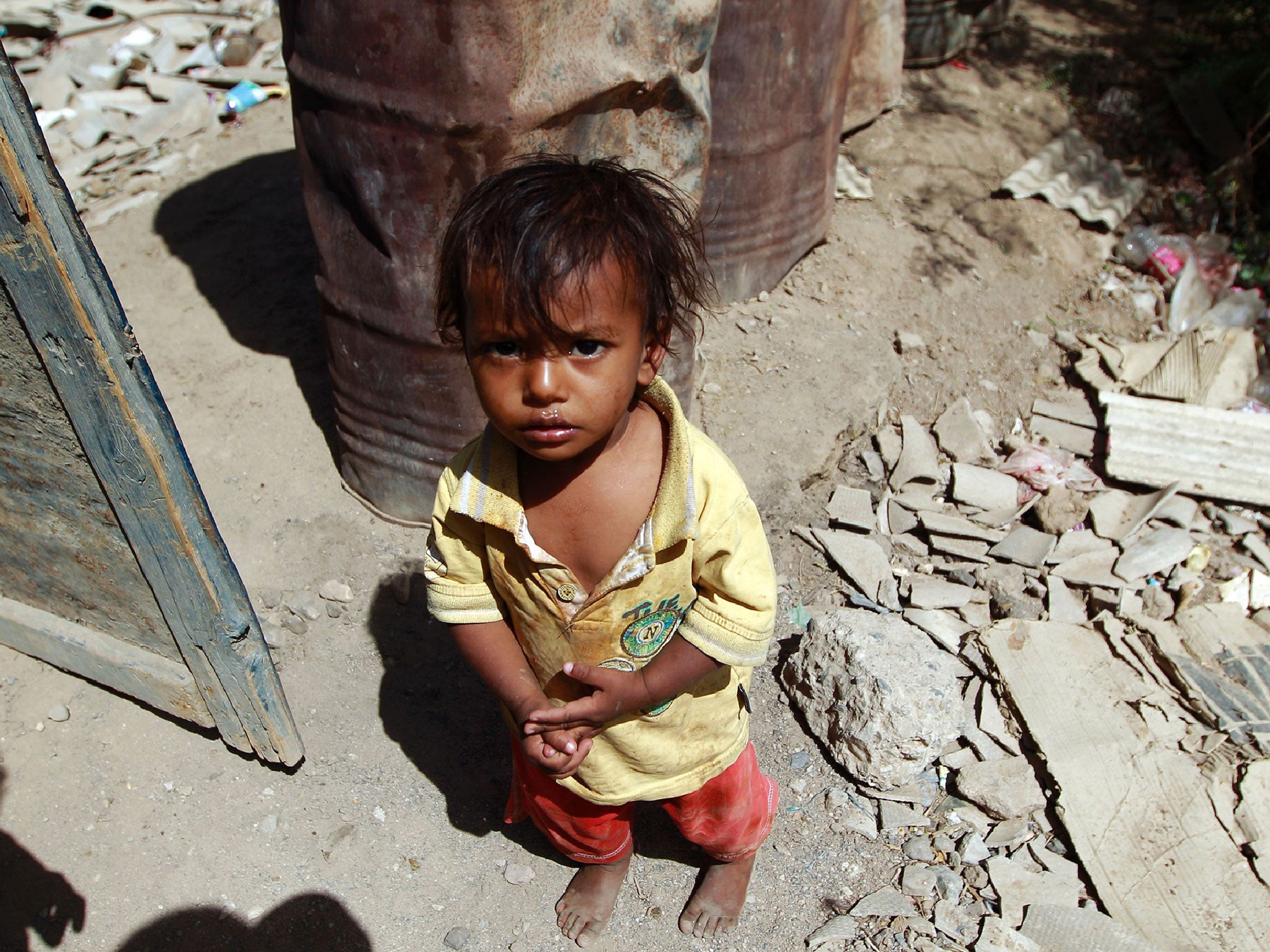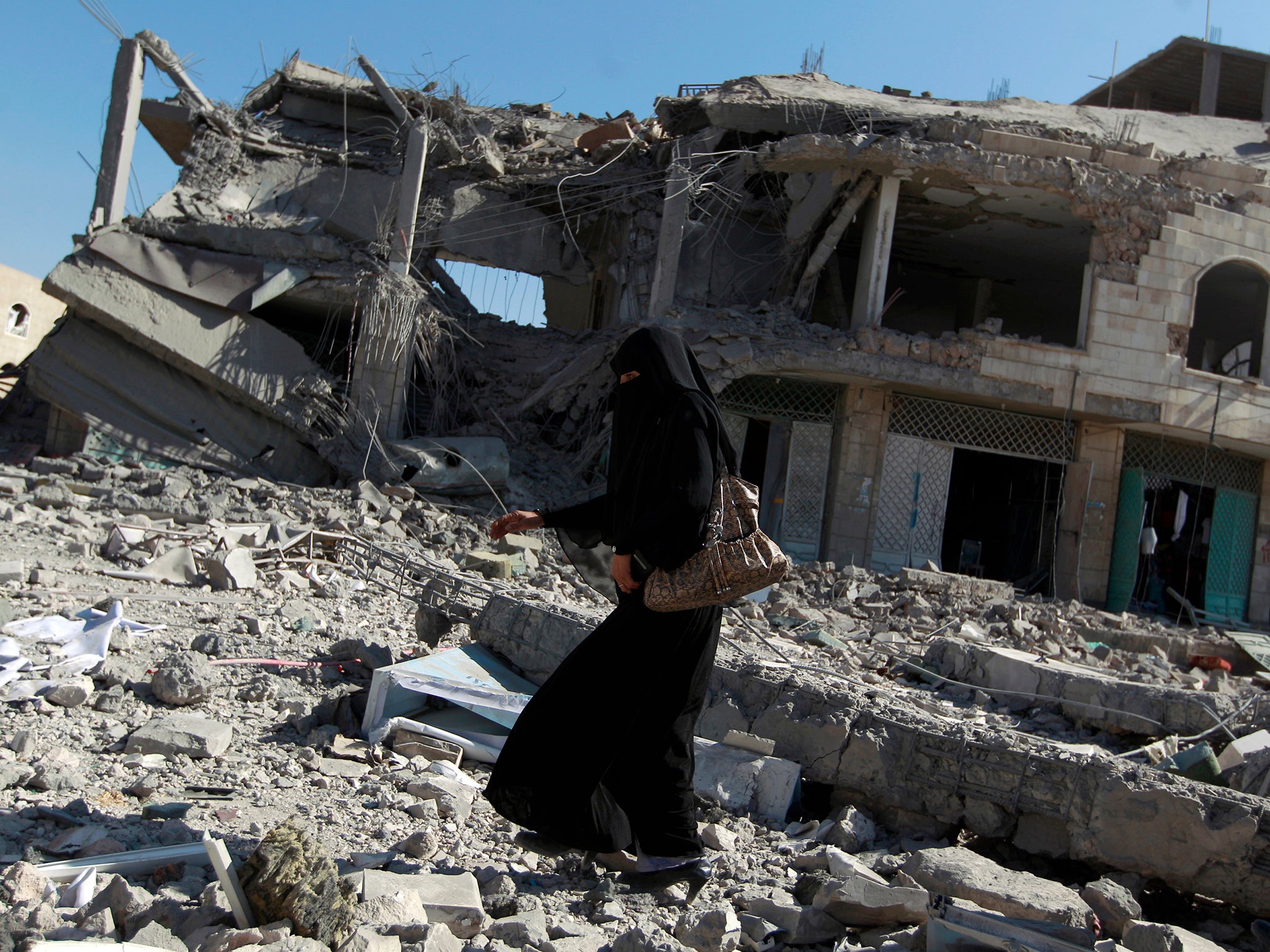British government faces calls to stop arms exports to Saudi Arabia after Netherlands weapons ban
'It’s hardly a matter of pride that misery in Yemen is Made in Britain'

Campaigners are calling for the British government to follow the example of the Dutch parliament and halt the country's arms trade with Saudi Arabia.
Politicians in the Netherlands have passed a bill calling for the government to end weapons exports to the Middle Eastern country.
It follows a European Parliament decision to impose an embargo on selling arms to the strict conservative theocracy over its role in the Yemen conflict.
The Saudi-led coalition bombing of Yemen has been condemned by the UN for carrying out “widespread and systematic” attacks on civilian targets in violation of international law.
But Britain, along with France, remains one of the biggest suppliers of arms to Saudi Arabia.

Campaign Against Arms Trade (CAAT) is currently pursuing legal action against the British government for its role selling arms to Saudi Arabia.
Andrew Smith, spokesman for CAAT, told the Independent: "It has been almost a year since the bombing of Yemen began.
“In that time thousands of civilians have been killed and vital infrastructure has been destroyed.
“Dutch politicians have joined the European Parliament in calling for an end to arms sales, and yet the response of the UK has been to keep arming the Saudi regime.
“What more will it take for the UK government to say that enough is enough?"
Oxfam also applauded the Dutch decision.
Tim Holmes, Oxfam’s Regional Director, said to the Independent: “Oxfam welcomes the Dutch government’s decision and urges the UK government to follow suit in banning the export of arms which continue to fuel the conflict in Yemen and may be used to target civilians.
"The government cannot continue to turn a blind eye to the growing evidence that UK weapons may be being used in violation of international humanitarian law in Yemen.
"The UK government needs to stop brokering arms and start brokering peace, and help end this conflict."
Amnesty International, which is due to hold a demonstration on Downing Street on Friday to protest on-going weapons sales to Saudi Arabia, also condemned government policy.
Oliver Sprague, Arms Programme Director for Amnesty International UK, told the Independent: “The Dutch Parliament has sent the right signal to its government in calling for a ban of weapons sales to Saudi Arabia at a time when they may be used to commit grievous rights abuses in Yemen.
“The UK must do the same. MPs need to make the same call to the UK Government. This past year, the UK has sold billions of pounds’ worth of war planes, bombs and missiles to Saudi Arabia.
“It’s hardly a matter of pride that misery in Yemen is Made in Britain.”
Despite this, David Cameron recently said the Eurofighter jets which are exported to Saudi Arabia are “brilliant things,” telling a room of BAE Systems workers “we’ve got more work to do in Saudi Arabia.”
Fifty-eight Eurofighter jets and 2,400 500lb Pathway-IV guided missiles have been sold by Britain to Saudi Arabia in the past year.
In his tenure, David Cameron has overseen the sale of £6.7 billion worth of weaponry to Saudi Arabia, including £2.8 billion since airstrikes on Yemen began, according to CAAT.
The conflict is believed to have killed over 2,800 civilians, including at least 700 children, many of them in air strikes.
Nearly 6,000 civilians have been wounded.
The Saudi-led coalition is also accused of using cluster bombs, a destructive form of explosive which spreads smaller ‘bomblets’ over a wide area.
These may detonate indiscriminately or fail to explode and act as a land mine.
The Netherlands are not the first European nation to question their relationship with Saudi Arabia.
In January, Germany was also reported to be looking into the possibility of reviewing its arms exports to Saudi Arabia, following mass executions carried out by the country earlier this year.
Join our commenting forum
Join thought-provoking conversations, follow other Independent readers and see their replies
Comments